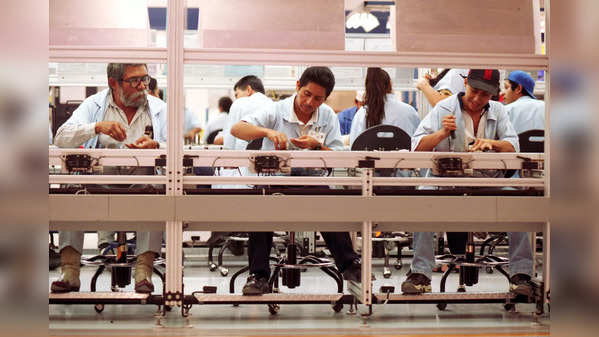Despite President-elect Donald Trump’s goal of bringing manufacturing jobs back to the U.S. through tariffs on China, companies are increasingly shifting production to Mexico. The growing trend undermines Trump’s promise to boost U.S. manufacturing, with analysts warning that it could result in lost opportunities for American workers while benefiting Mexico’s economy.
Tariffs Driving Manufacturers to Mexico
Trump’s aggressive tariff stance against China was intended to push companies to bring their manufacturing back to the U.S. However, in practice, it has triggered a wave of production migration to Mexico. This shift is driven by Mexico's favorable trade conditions under the USMCA, lower labor costs, and proximity to the U.S. market, which makes it an attractive alternative to China for manufacturing. Industry analysts note that this trend began during Trump's first term and has gained momentum as his tariff policies are set to escalate.
The Unintended Consequence: Manufacturing Boom in Mexico
With Mexico's goods entering the U.S. tariff-free under the USMCA agreement, many companies are looking south of the border instead of back home. The trend is especially evident in regions near the U.S. border, where Chinese companies are increasingly setting up manufacturing operations. In 2023, Chinese companies alone announced nearly $4 billion in investments in Mexico, with additional investments expected in 2024. As a result, the manufacturing industry is booming in Mexico, with major players like Lingong Machinery Group and Hisense establishing new factories and creating thousands of jobs.
Trump’s Promise vs. Reality: Jobs Aren’t Returning to the U.S.
Despite Trump’s claims that his tariffs would bring production back to America, the reality is that many companies are choosing to relocate to Mexico instead. Analysts like Mary Lovely from the Peterson Institute argue that Trump’s tariff policies haven’t succeeded in reshoring U.S. manufacturing but rather shifted production to low-cost alternatives like Mexico and Vietnam. This trend contradicts Trump’s pledge to strengthen U.S. manufacturing by making Chinese imports more expensive.
Tariff Uncertainty and Its Impact on Corporate Decisions
Trump’s threat of new tariffs on Mexico creates uncertainty, which is causing some companies, including Tesla, to delay or reconsider their investments in Mexico. Despite the threat, the advantage of Mexico’s favorable trade agreements, lower wages, and proximity to the U.S. market continues to draw foreign investments. However, with Trump’s potential tariffs on Mexican imports, many companies are in a “holding pattern,” waiting to see how trade dynamics unfold once he takes office.
Concerns Over China’s Role in Mexico’s Manufacturing Growth
There is growing concern over Chinese firms using Mexico as a backdoor to avoid tariffs on their exports to the U.S. Critics, including Trump ally Senator Marco Rubio, have argued that Chinese companies may exploit Mexico’s trade agreements to circumvent U.S. trade policies, putting U.S. jobs at risk. Chinese companies have been increasingly setting up operations in Mexico, and the low labor costs and favorable trade rules make it a viable alternative to manufacturing in China or the U.S.
The Challenges of Bringing Manufacturing Back to the U.S.
Experts argue that Trump’s goal of fully reshoring manufacturing to the U.S. is unlikely to succeed. High labor costs, workforce shortages, and the difficulty of scaling up production in the U.S. make it impractical for many companies to shift production from low-cost countries like China and Mexico back home. The high costs associated with such a move—estimated to be in the hundreds of billions of dollars—along with workforce limitations, means that the full return of manufacturing to the U.S. is not feasible in the short term.
In Conclusion: A Manufacturing Shift to Mexico
While Trump’s trade war with China has undoubtedly reshaped global manufacturing, it has largely benefited Mexico, not the U.S. Despite efforts to lure companies back to American soil, lower labor costs and favorable trade agreements have made Mexico the go-to destination for companies looking to avoid tariffs. The result is a manufacturing boom in Mexico, with China’s footprint in the country growing and U.S.-based firms also capitalizing on the opportunity. Trump’s promise to bring jobs back to the U.S. remains elusive as companies continue to flock to Mexico for cost-effective production.
